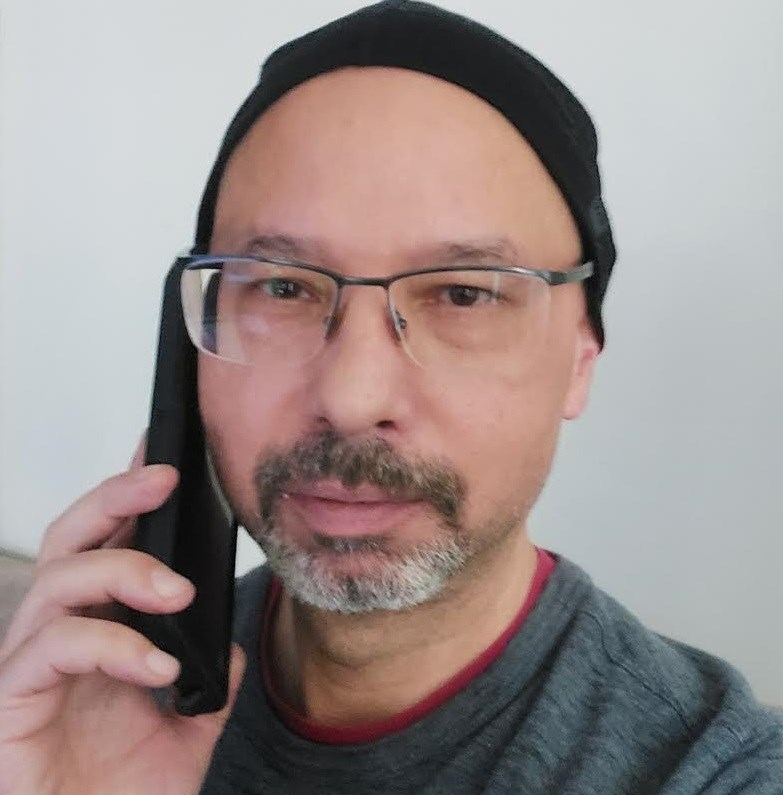Every day, Newmarket's drug users take their lives into their own hands, risking overdose and death to feed their habit, and for the past few months, the Krasman Centre in Newmarket has been running a new peer support line to help make sure they can get medical attention if the worst should happen.
The program has been growing steadily since it was created last October as more and more users learn about it, but with the funding set to run out by March 31, the local mental health and addiction centre is "scrambling" for new funding to keep the project going and save lives.
"I have a real sense of urgency about how necessary this line is. We have seen five or six people die every day in Ontario because of the use of toxic substances, and there seems to be very, very little indication of the will to face it head on," said Dylan de la Rivière, wellness collaborative team lead at the Krasman Centre.
The centre received $50,000 grant from the United Way of Toronto and Health Canada's Emergency Community Support Fund to create an over-the-phone 'virtual spotting' service, where a peer support worker will stay on the phone with someone, so they don't need to feed their habit alone. Should they begin to overdose and need oxygen, naloxone or other help, the support worker can call first responders and give them the user's location.
The phone line is manned every day between 10 p.m. and 3 a.m. and it is open to anyone, not just residents of York Region.
"It's a late-night line because, in York Region, the overwhelming majority of fatal poisonings occur late at night in private residences. So we have someone available every night of the week," he said.
"Our peer supporters are people who have lived through mental health or substance abuse challenges in their lives. That way, whenever someone calls, they know they are talking to someone who gets it, who understands addiction and dependence, but also recreational use, which frankly, is the majority of substance use. There's no stigma or judgment."
De la Rivière notes that the service is essentially the same as a safe drug use site that many other communities have, minus the face-to-face contact and with a delay in the arrival of medical help in emergencies.
It's a service that is becoming more and more necessary as street drugs such as fentanyl become increasingly dangerous for users, said de la Rivière. But it's a Band-Aid solution; what he really wants to see is decriminalization and regulation.
"We have a completely unregulated supply with benzodiazepines, which means that no one really knows what they are taking anymore. The only way to truly respond to that would be to regulate it and establish some quality control," he said.
Since its inception in the fall, the support line has been slowly seen more and more users begin calling in to have someone watch over them, to the point where the line gets about five calls per week on average.
De la Rivière notes that it takes time to build trust with people, and word will continue to spread if the support line can continue to operate past the end of the month.
"There are only a few lines like this, and we are on track to getting more people. I think it's safe to say the longer we exist, the more calls we will get,"
he said.
"It takes time to establish traction with people who use substances. Apart from the stigma, the reality is that most of these things are illegal, and it's pretty hard to connect with people. But once the connection is made, people call back. There are regulars."
The money that the support received in October has been used to pay the peer support workers for their time working the phone, which de la Rivière said has been an important part of the success of the line so far.
"As far as I know, we are the only line like this in North America where the staff are paid, and that's a crucial thing for me. This work can take a lot out of you, and it's important to provide proper support and training for them. Also, to make sure they show up every night, there needs to be compensation."
The centre is currently seeking new sources of funding to keep the line going, but the search has been a difficult one.
"We are scrambling, which is a nicer word than I would otherwise use. Most grants are very specific in what they want to give money for. So it's a question of applying for grants that will support this," he said.
"(What grants there are) right now are tied directly to COVID-19, which is very frustrating. This is a (drug) epidemic that has existed for many years now, but it took COVID-19 to get a response on this, but it's a response that's likely to end sooner rather than later."
If you wish to use the support line, call 1-888-233-5633 between 10 p.m. and 3 a.m



